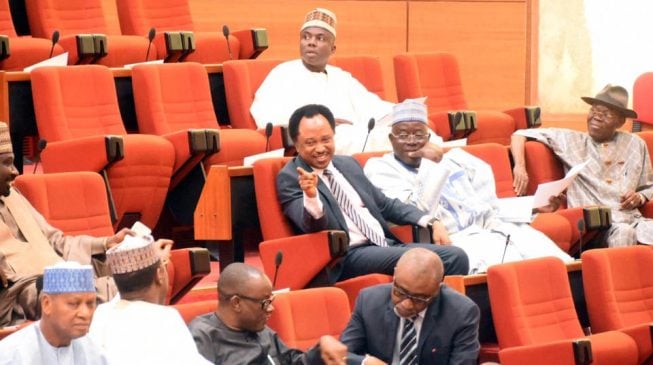
The national assembly finally passed the 2018 budget on Wednesday, about six months after President Muhammadu presented it.
In November, Buhari had proposed N8.6 trillion as the appropriation for the 2018 fiscal year, with N3.5 trillion as recurrent (non-debt) expenditure, while N2.4 trillion was earmarked for capital expenditure.
But the lawmakers raised the budget by N500 billion, increasing recurrent and capital expenditure to N3.49 and N2.86 trillion respectively.
Why was the budget increased?
Danjuma Goje, chairman of the senate committee on appropriation, said the N500 billion increase was informed by the decision to raise the oil benchmark from the proposed N45 to N51 (as against the benchmark price of $44.5 per barrel in 2017 budget).
Goje said the additional fund would be spent on some critical sectors, with a breakdown as follows: education, N15.7 billion; judiciary, N10 billion; and Niger Delta Development Commission (NDDC), N44.20 billion.
Others are security, N42.72billion; N57.15 billion for the one percent vote for health and N106.50b billion for the ministry of power, works and housing.
What are the other highlights of the budget?
N305/$, 2.3mpd
In the budget, the exchange rate is pegged at N305/$1. In contrast to the 2017 budget where the oil production benchmark was 2.2 million barrels per day, the 2018 budget was tagged at 2.3 million barrels of oil per day as was proposed by the executive.
N139 billion for lawmakers
The national assembly got a share of N139 billion from the budget as against the N125 billion it got last year.
The N14 billion increase was despite the criticisms that trailed the high earnings of the lawmakers both in the senate and the house of representatives.
N109bn to UBE, N81bn to NDDC
The Universal Basic Education (UBE) under which basic education is regulated got a share of N109 billion (unchanged), while the Niger Delta Development Commission (NDDC) got of N81 billion, as against the N71.2 billion proposed by Buhari.
However, an additional N34 billion was provided for the NDDC as part payment of its outstanding liabilities to the federal government. There was also a provision of N110bn for statutory transfer to National Judicial Council (NJC) as against the N100 billion approved by Buhari.
INEC got N45bn while Human Rights Commission gets N3bn
The Independent National Electoral Commission got N45 billion — lesser than the N45.5 billion it got in 2017 — while N7 billion was provided for the Public Compliant Commission, and N3 billion for National Human Rights Commission.
These details are the ones available at the moment. TheCable will bring you more update with time. - Cable Nigeria
No comments:
Post a Comment